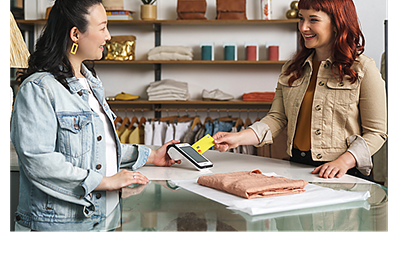Australians have embraced cashless payments as a convenient and reliable way to shop, with more than 2 billion EFTPOS transactions¹ made each year.
What are the costs of EFTPOS?
When shopping for an EFTPOS machine, it’s not just the cost of the EFTPOS machine to consider. It’s helpful to take into account the overall cost of doing business electronically. This includes:
- EFTPOS machine purchase or rental
- Point of Sale (POS) merchant plan
- Data or internet plan
- Business transaction bank account costs or fees
- Any processing fees associated with specific payment networks (like the Visa network or Apple Pay network).
Where can you buy an EFTPOS machine?
We have a range of fast, flexible EFTPOS terminals to suit your business needs.
What about surcharging?
To cover the cost of using EFTPOS, you may consider passing on those charges to your customers, or set a minimum purchase amount. If you choose to do that, make sure you understand how your customers might feel about the additional costs of purchasing from your business. Find out more about surcharging customers.
Where will you use your EFTPOS machine?
Some EFTPOS machines require a fixed line broadband connection, which means you can only do business at the point where the machine is installed. Many EFTPOS machines, however, can be used ‘on the road’ using 4G/3G connectivity. Some machines can do both, making use of a data plan when you’re working remotely, or connecting to your Wi-Fi or broadband via Bluetooth connectivity so you can do business anywhere within your store.


